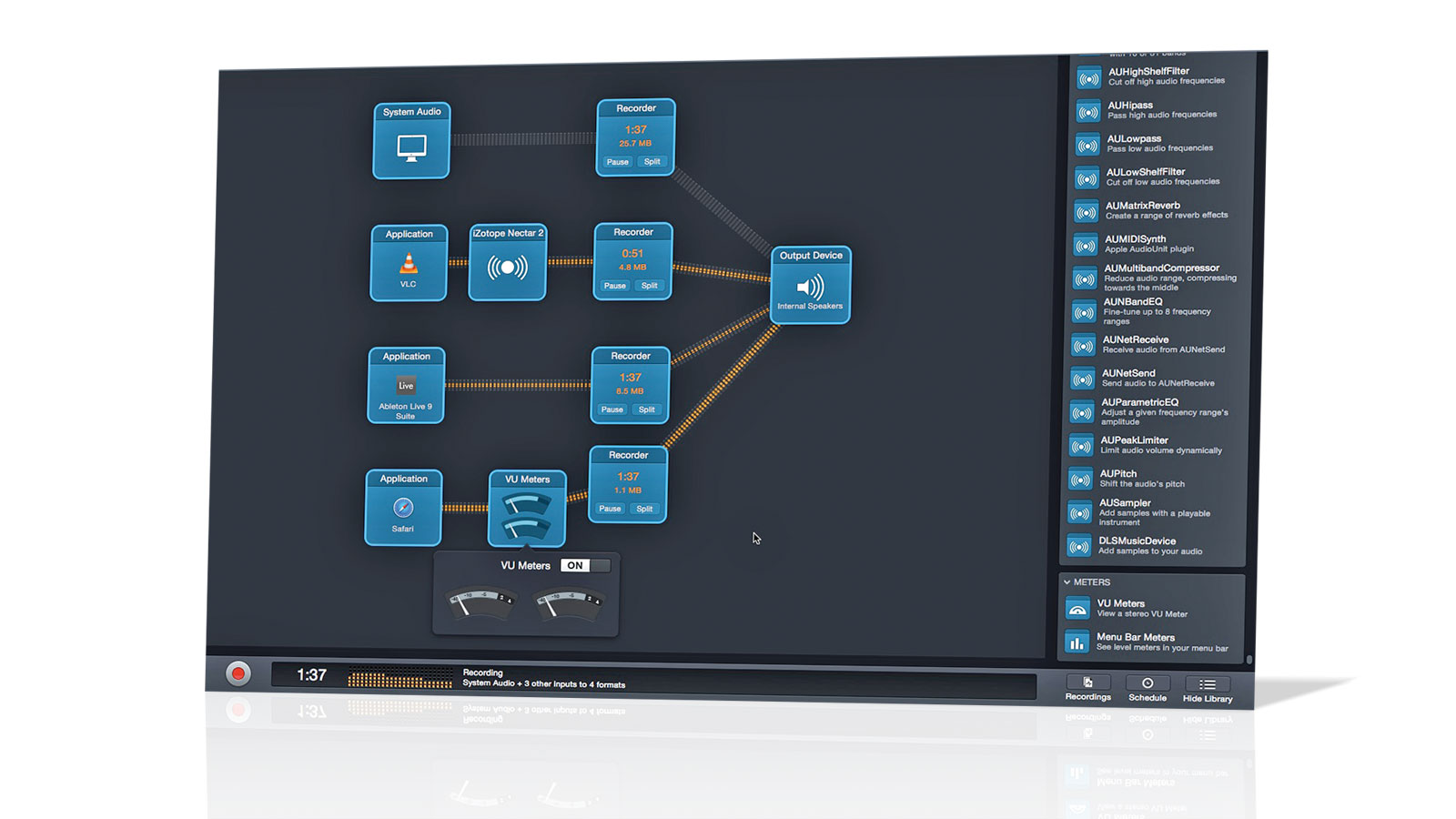MusicRadar Verdict
While there are other, cheaper ways to achieve much of the same functionality, Audio Hijack 3's self-contained power and convenience can't be denied.
Pros
- +
Easier to use. Useful presets. FLAC recording. 'Set and forget' recording.
Cons
- -
You'll need to spend $49 for a utility app, albeit a handy one.
MusicRadar's got your back
Audio Hijack Pro has long served as a handy tool for the OS X musician looking to capture audio from any app on their system - movie excerpts, YouTube, DVDs, videogame FX, Skype calls with record label lawyers, etc - in various formats, complete with Audio Units plugin support. But its interface has never made the process as easy as it could be.
"$49 may seem a lot to drop on what is ultimately a 'utility' app, but it does what it does exceptionally well"
Audio Hijack 3 represents a new beginning for Rogue Amoeba's venerable workhorse, with 'Pro' dropped from the name, a totally new look, a slick new modular workflow, task-orientated presets, multiple recorders per session, FLAC recording and more.
$49 may seem a lot to drop on what is ultimately a 'utility' app, but it does what it does exceptionally well. Perhaps our favourite role for it is as an 'arm-and-forget' recorder, running in the background constantly when we're making music and recording every noise the host Mac makes, including all those happy accidents.
Want all the hottest music and gear news, reviews, deals, features and more, direct to your inbox? Sign up here.
Computer Music magazine is the world’s best selling publication dedicated solely to making great music with your Mac or PC computer. Each issue it brings its lucky readers the best in cutting-edge tutorials, need-to-know, expert software reviews and even all the tools you actually need to make great music today, courtesy of our legendary CM Plugin Suite.

